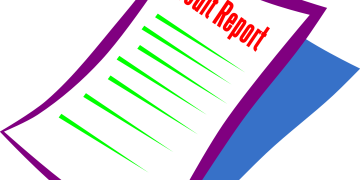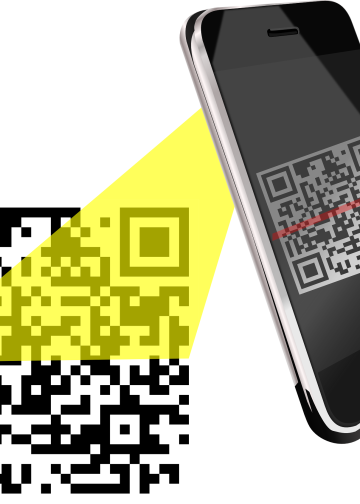Heart attacks are more than just medical emergencies. They are traumatic events with long-term physical and emotional consequences.
Sadly, more than 800,000 Americans have a heart attack every year, out of which 75% are first-time heart attacks. If you are one of the 75% reading this post, you are probably wondering what you can do to make sure that a second attack does not occur. You are scared – understandably so. Your life just took a severe turn.
But get this: you still have a life! And if you take good care of yourself, this life can still be just as good, if not better, than it was before the heart attack.
Here are some critical self-care tips to help you recover like a boss.
1) Include a Potent Anti-Inflammatory Peptide in Your Diet
After a heart attack, there can be a dramatic increase in inflammation. It can further weaken the heart.
Therefore, your diet must include an anti-inflammatory peptide like BPC 157. BPC 157 has been found to reduce inflammation and boost cardiovascular health by supporting the healing of tissue damage caused by a heart attack. It is, like all peptides, a chain of amino acids that improves blood flow and protects against oxidative stress.
The right way to use this peptide is to add it to your diet in the form of a supplement. It will boost your body's healing process and help you recover faster.
Look for an authentic store that has BPC 157 5mg for sale and use it as directed.
2) Take Part in Cardiac Rehab
As discussed, experiencing a life-threatening event can be very traumatic. But stress might worsen your situation and extend recovery time. So, one of the best things you can do is to enroll in a cardiac rehabilitation program that combines physical activity with counseling and education sessions.
The American Heart Association (AHA) has created a program that can help improve your heart health through supervised exercise training, diet education, and other risk management strategies. Not only that, but it can also help you deal with stress, which can prevent post-heart attack depression and anxiety.
Working with trained medical professionals and peers can be very supportive, providing a community of people who have dealt with similar experiences.
3) Reduce Stress Through Meditation
If you don't wish to join a cardiac rehabilitation program, you can still reduce stress through meditation.
Meditation is an ancient practice that helps improve overall health, reduce stress, and keep you focused on the present moment.
It helps to calm your mind and body and can lower your heart rate, which reduces the strain on your heart.
There are multiple meditative practices available, so it is crucial to find one that works best for you. You can try the following to get started:
- Guided meditation is when an instructor, usually a professional, leads you through the process. They'll usually provide visualizations and positive affirmations to help you stay focused.
- Focused breathing involves focusing on your breath and taking slow, deep breaths. It helps relax your body and mind, reducing stress.
- Yoga combines physical postures, breathing exercises, and meditation to create a powerful practice. The best yoga poses for improved heart health are Vajrasana, Tadasana, and Malasana.
4) Make Healthy Lifestyle Choices
As you start the healing process, you must make healthy lifestyle choices that will help you stay well.
First, it is essential to maintain a healthy diet that is high in whole and nutrient-dense foods. This means incorporating fruits, vegetables, whole grains, and lean proteins into your diet. Stay away from processed and sugary foods as much as possible.
Second, you should exercise regularly to help build strength and endurance. Start with low-impact activities such as walking and swimming, and gradually build up your intensity. Involve a coach or trainer to ensure you are doing the exercises correctly.
Finally, get adequate sleep and rest. Sleep is essential for your body's recovery and repair process. Get at least 7-8 hours of peaceful sleep each night, and take rest days when needed. Aromatherapy and calming music can help you relax and sleep better.
5) Strictly Follow Your Medication Plan
Heart patients are usually prescribed a few medications, such as statins and beta-blockers. These drugs can work in different ways to lower your risk of having another heart attack or stroke. For instance, beta-blockers help lower blood pressure and reduce your heart's workload. Statins, on the other hand, reduce cholesterol levels and help prevent clogged arteries.
Take these medications as prescribed by your doctor to ensure maximum benefit. Make sure to stay on top of refills. Contact your doctor if you experience any adverse side effects.
We recommend using a pillbox to help you keep track of your medications. You can also use apps that remind you to take your medication on time.
6) Stay Connected and Communicate Your Symptoms
Post-heart attack recovery shouldn't be a lonely ride. You need your friends, family, and medical team to keep you on track. But unless you communicate your needs and symptoms, they won't be able to help.
Therefore, you must always stay in close contact with your doctor and other support network members. If you are feeling overwhelmed or have any questions, reach out to them.
It is also important to communicate your symptoms and experiences to your doctor. Let them know if a medication is causing any side effects or if a treatment isn't working. This way, they can adjust the plan accordingly and ensure you get the best care possible.
Conclusion
You've survived a major health crisis. You're stronger than you think. So, now isn't the time to underestimate your mental and physical strength. In fact, it's time to make sure you don't end up in the same position again.
Although you may be feeling a bit helpless and lost, remember that post-heart attack recovery is entirely possible with dedication and determination. Incorporate the self-care tips listed above into your routine and seek support from those around you. With time, you will start feeling better again.
























